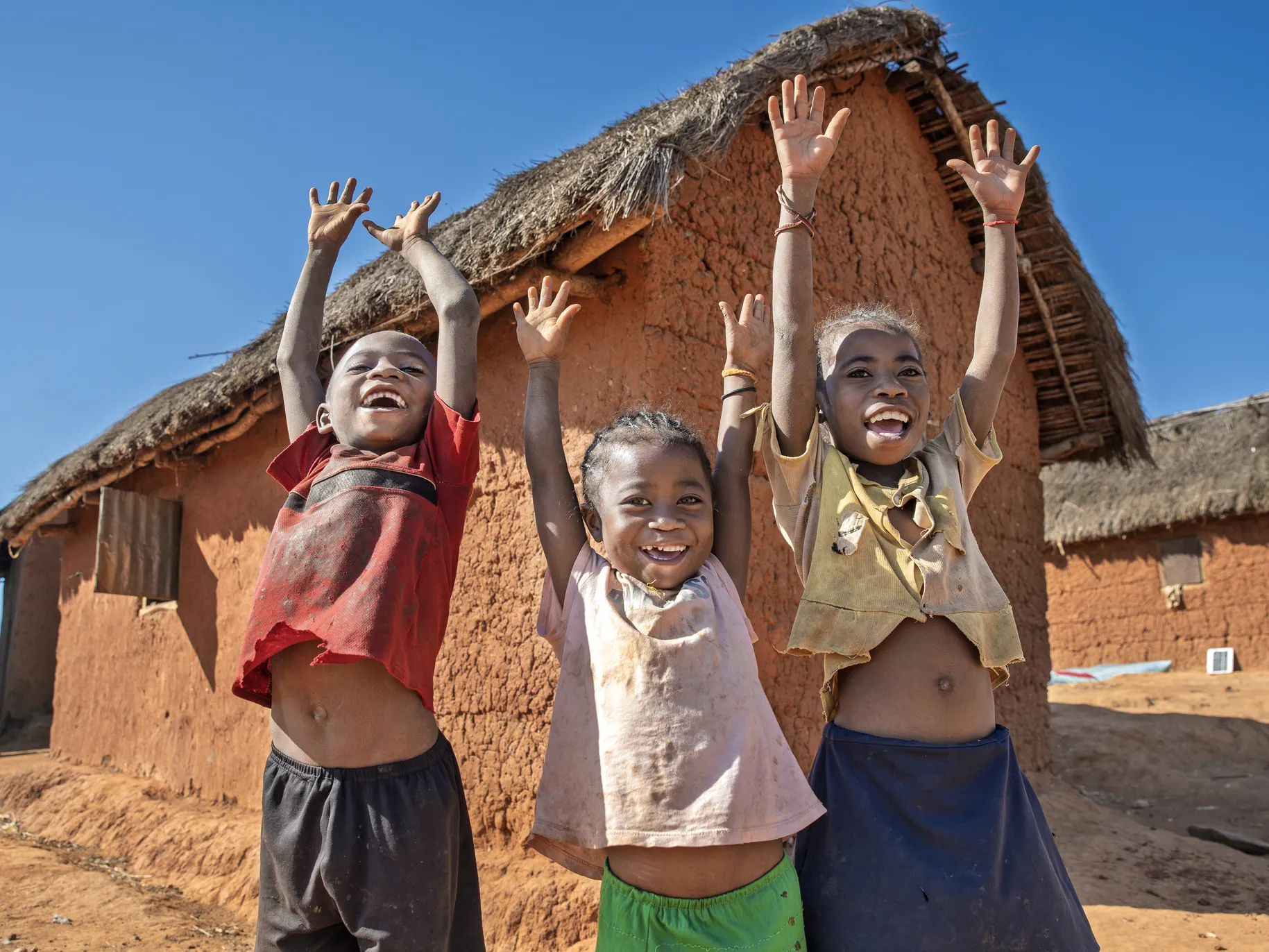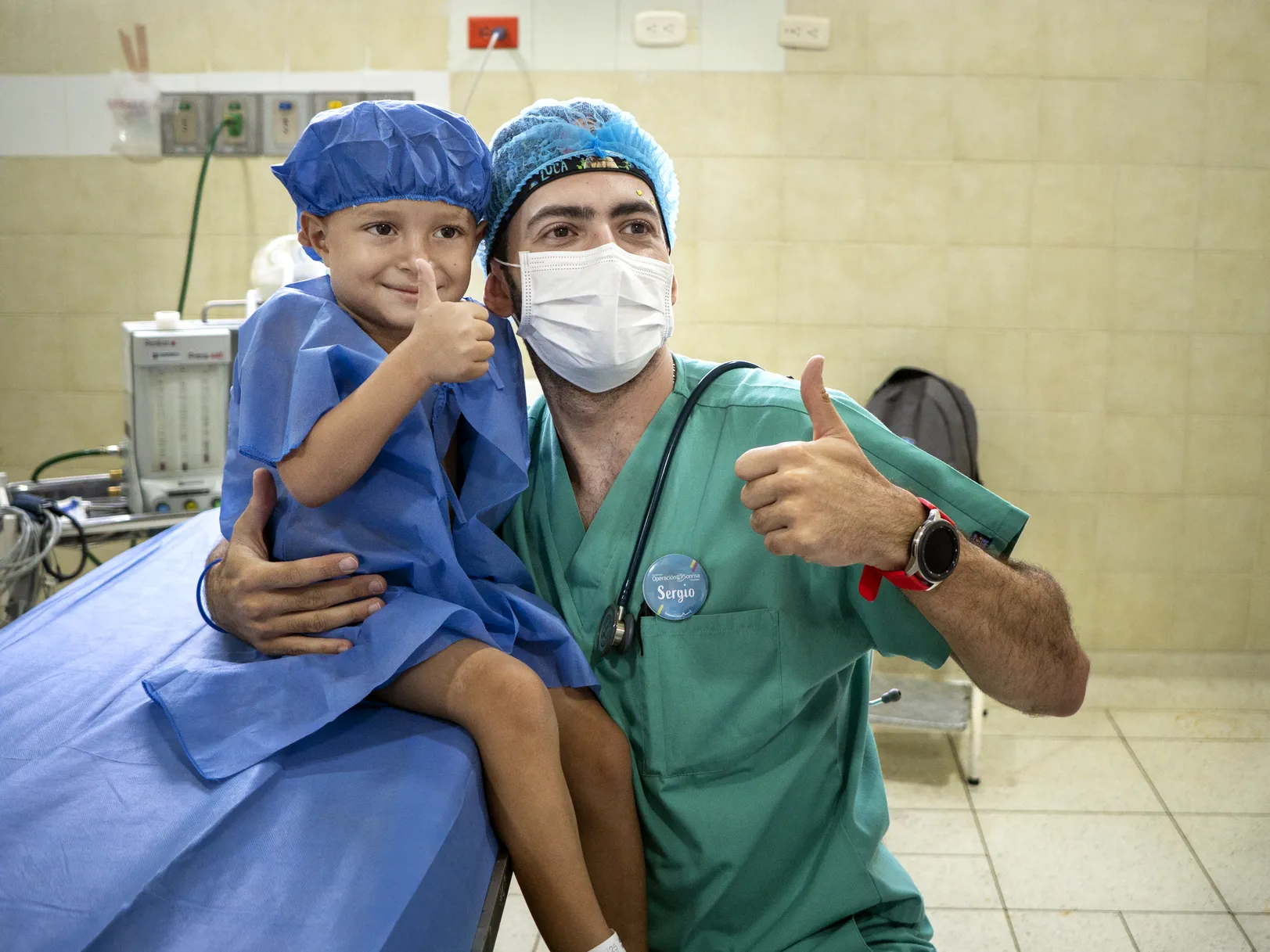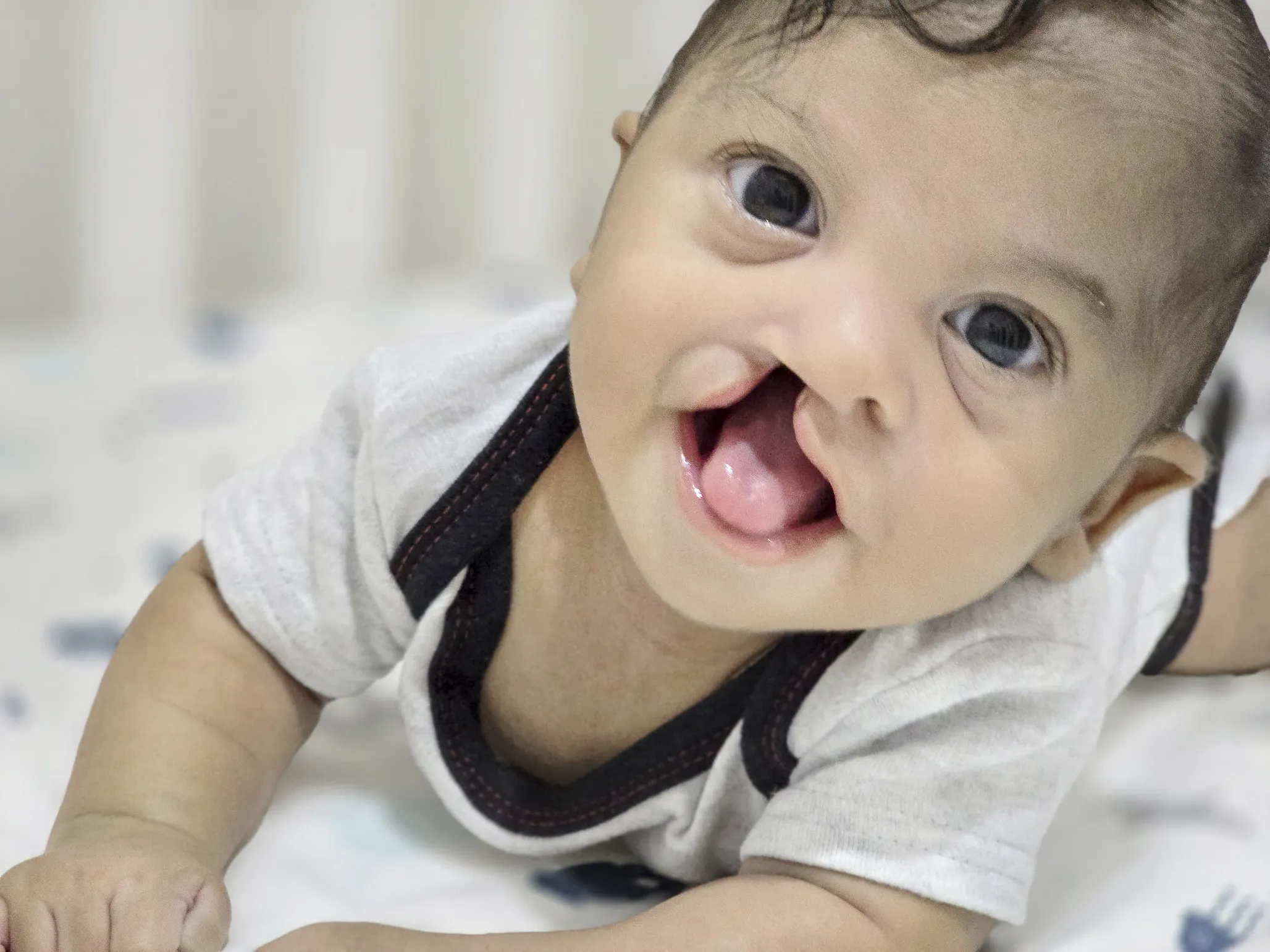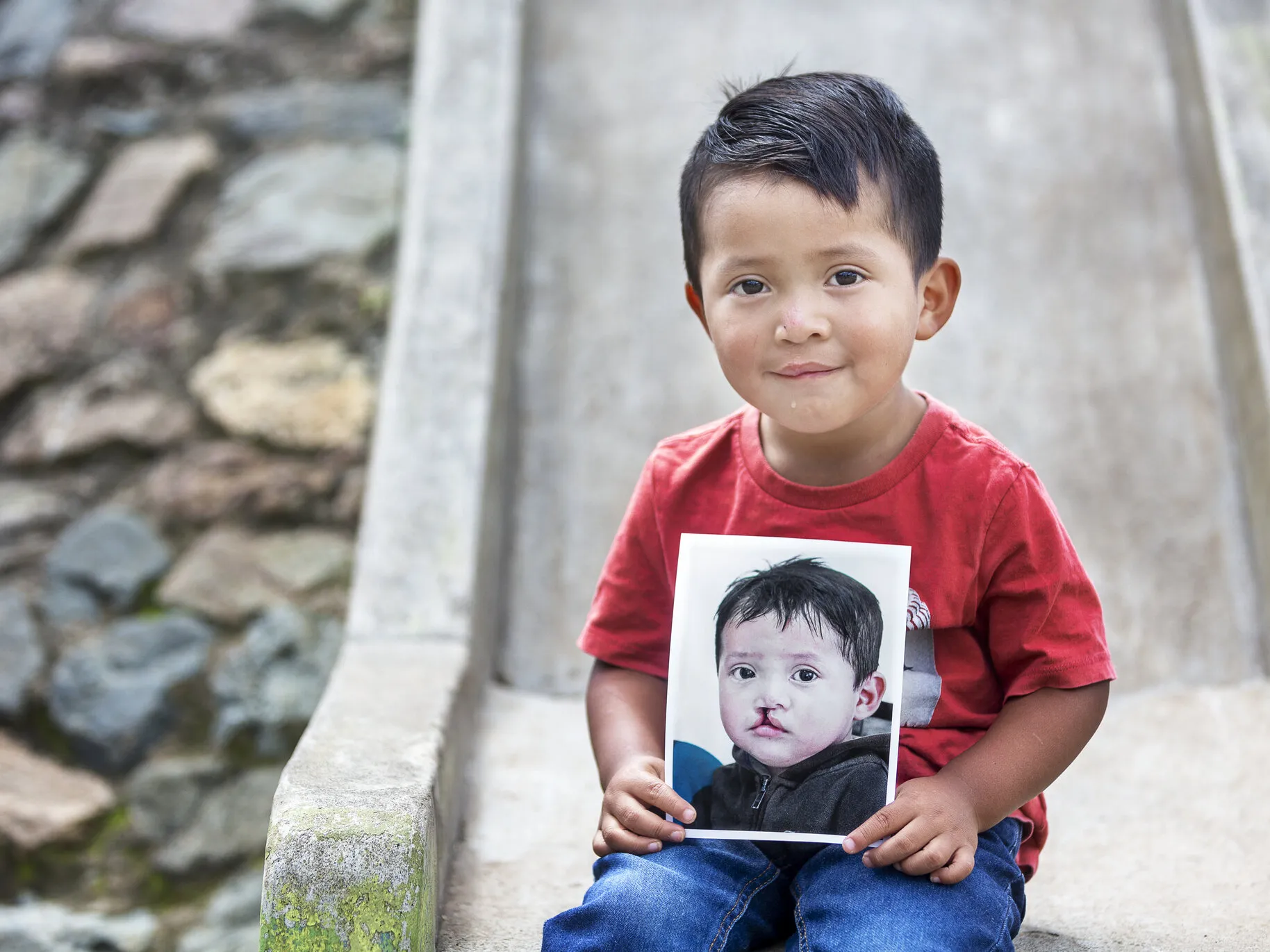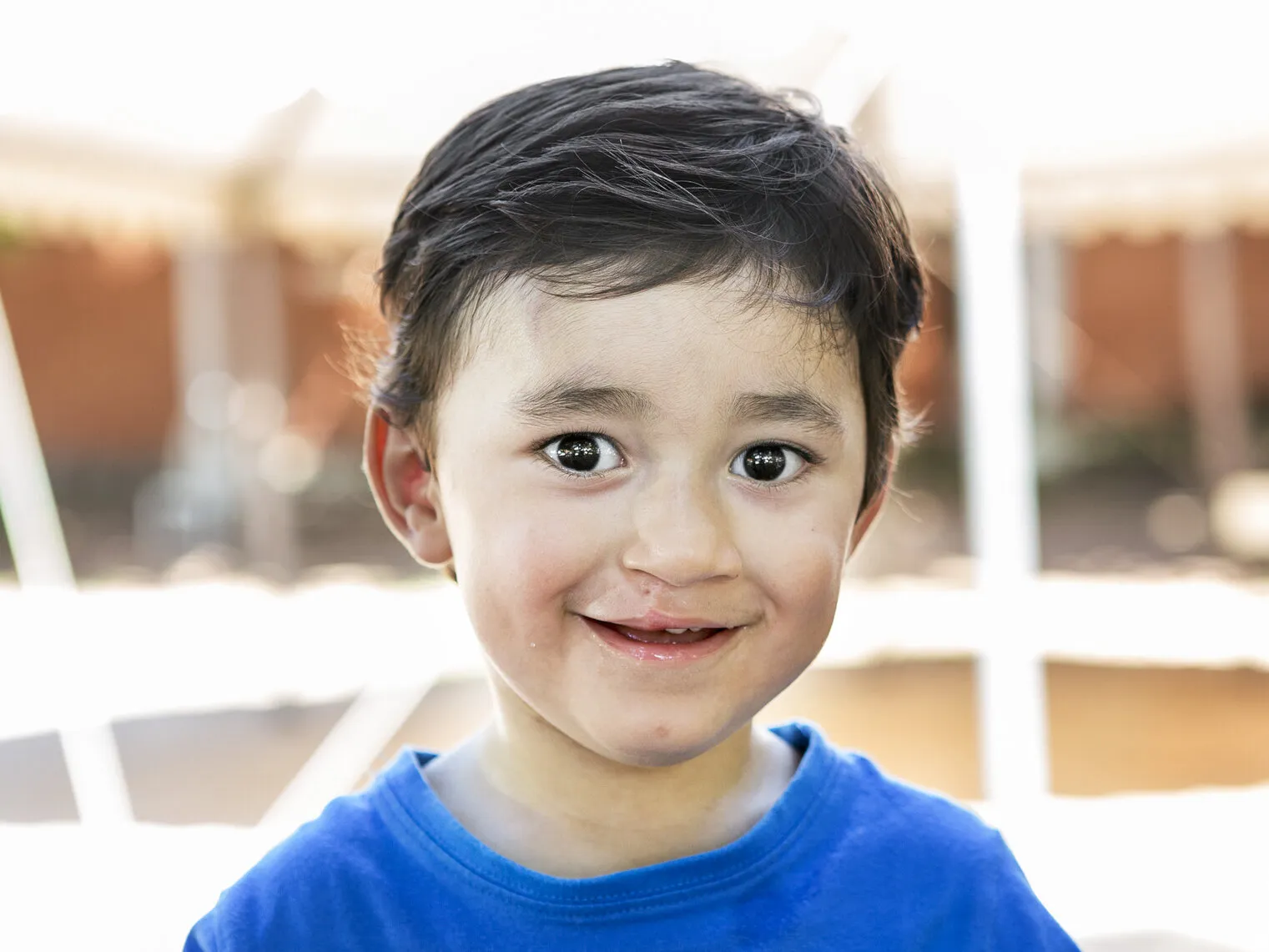Patients
In Ethiopia, Operation Smile is a Family’s Only Hope

A young mother sat patiently on a bench with a sadness overwhelming her face. She wore a white shawl and covered her baby with a blanket so no one could see the baby’s face. She was waiting for her baby’s medical evaluation at the Operation Smile medical program in Jimma, Ethiopia.
When her time came to see the doctors, she uncovered the baby for the first time during the many hours of waiting outside. The baby was only 19 days old, and she had a facial cleft going all the way from her right eye through her cheek and into her mouth and palate. She couldn’t close her right eye, and her eye fluid was running down as if she was constantly crying.
The girls name is Meheftehe, which means “solution” – a name they gave her in desperation for finding a solution for their baby, born in a condition they thought was a punishment from God.
I was so scared and frustrated and asked God, ‘Why? Why has this happened?” said Meheftehe’s mother, Genet Ayele. “Even if I have sinned – why are you punishing my daughter?”
Genet gave birth to her daughter at the hospital in Jimma. But she had a dramatic and very difficult delivery. She was sent to the hospital the third day of labor. The baby’s head was then visible but she had no strength left to push, so she thought she and the baby would die on the many hours drive to the hospital.
“I asked my husband to pay all my debts to my neighbors since I thought I was going to die. I had no strength left,” she said.
The baby survived, but something was wrong.
“I was so sad when I saw her. I couldn’t stop crying. When we came home I didn’t want to see anybody. I hid my daughter inside. When neighbors came to bless her, I didn’t let them see her. I told them she was sleeping. I didn’t want them to see her to protect her from their judgment,” Genet explains.
David Orr, plastic surgeon from Ireland examined Meheftehe when it was her turn to see the surgeons. He explained her condition:
“That’s a little girl who has been born with a much more complicated cleft than the usual cleft in the lip and palate. It occurs where the two processes of the face are coming together, and where the seam where they join just fails to close. So this child has missing tissue running all the way from the lower eyelid right across the side of the nose and down into the into the lip. But what that child really is most at risk from initially is the eye, because if the lower eyelid can’t help the upper eyelid in closing the eye, the risk is that the cornea of the eye will dry out and become ulcerated, and the child will develop a scarring of the cornea and blindness. So it’s important to get that eye protected, and cover it, as soon as it can possibly be done.”
The doctors continue to explain to the mother about Operation Smile’s World Care program, in which some of the very complicated but treatable cases are taken abroad to have surgery at a specialist craniofacial center.
David explains that the baby is also too small to have surgery now. She has to be at least 6 months old to gain enough weight to be able to undergo anesthesia. The mother will see an eye-doctor to get directions on how to treat the baby’s eye until the surgery can be done.
Genet leaves the hospital crying, and the Operation Smile nurses try to comfort her the best they can.
“When I heard the only treatment was to have surgery abroad, I lost all hope. It was as if I then buried my daughter – I felt there was no solution for her. We don’t have the money to take her abroad,” Genet says in her home a couple of days later.
They live in a rental house just by the dirt road in the village Geira, a three hour drive from Jimma. They earn their living by running a little restaurant in the front of the house, serving traditional food for the villagers. Meheftehe is lying inside. Still, none of the neighbors have seen her. They will continue to hide her as long as they can to protect her. They know what the neighbors will say.
They will judge me,” Genet says. “Some will say it is a curse.
Dr. Malin Hakelius, plastic surgeon from Sweden, explains to the young couple that they should not worry. If Meheftehe is going to be part of the World Care program, it will not cost anything for the parents.
But hopefully Meheftehe will not need the care abroad. Seven months later, Malin is one of the plastic surgeons participating in the surgical program in Addis Ababa. Meheftehe is there with her parents to be screened and to hopefully receive surgery to save her eye from blindness.
Luckily, Meheftehe was healthy enough to receive surgery to save her eye, but many more operations are needed, maybe abroad.
“We managed to reconstruct her lower eyelid and to close the cleft on her right cheek and lip. Now we need to reconstruct her soft palate so that she can develop a good speech. After that we’ll have to observe her development and wait as long as possible with more surgery, to let her grow as normal as possible. Later, when she is around 8 years old, she will need to have a bone graft to where she is lacking bone; the alveolous, the cheek and maybe to her orbital floor. Before that we’ll have to do a CT scan,” Malin explains.
Malin hopes to be able to go back in March to operate on her cleft palate, which is so important for her speech development.
Meanwhile, her parents are now on Facebook and every now and then send us a little update on their lovely daughter’s development. They are proud of their daughter now, and not afraid to show her to the world.
